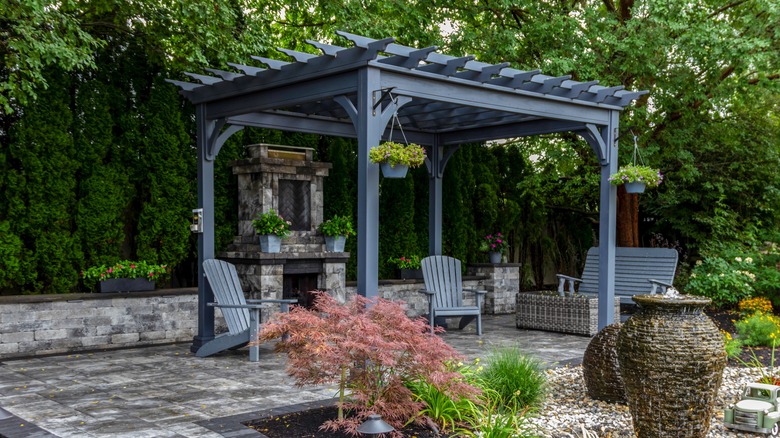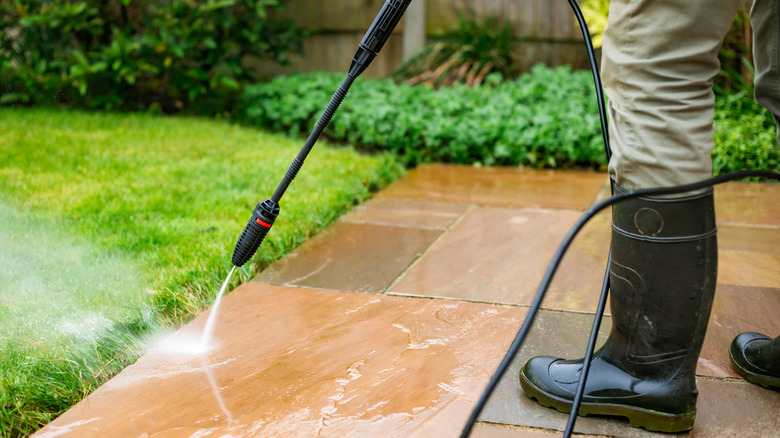Here's How Often You Should Be Resealing Your Pavers
Pavers are a fantastic way to give your hardscaping projects like patios and driveways a distinctive look. When compared to regular concrete, the colors and unique patterns of stone pavers just stand out. But to help emphasize and maintain their charm for as long as possible, you need to keep up with your pavers' seal.
Generally, pavers should be resealed around every three to five years. That may sound like a lot of upkeep, but sealant isn't worth skipping out on. To start, sealants actually help bring out the natural colors in your pavers and prevent them from easily staining, so you won't need to worry as much about natural wear and tear from hosting family and friends on your patio or simply parking cars in the driveway. Sealing your pavers is also a great way to protect them from elements like harsh weather or UV rays, which can make them erode faster. Therefore, it can make your patio or other area more durable.
There are a few telltale signs that it's time to reseal your pavers like fading colors or cosmetic damages such as cracks. Depending on the type of sealant, you can often notice when the barrier is wearing off. But you can also check your pavers after rain to see if there's a significant color change indicating that it's sucking in water instead of repelling it. Or, you can do a quick water test by pouring some water on your pavers. If it gets absorbed quickly, it's time for a reseal. If it doesn't absorb for 30 seconds or more, you most likely don't need to seal the surface right now.
Can you reseal pavers by yourself?
The cost for a professional to clean and reseal your pavers may make some people balk. You should expect to spend around $1 to $3 per square foot depending on what sealant you choose, the condition of your pavers, and so on. For your average patio, that means the costs of resealing pavers can quickly climb to a couple hundred dollars.
But if you have a weekend to spare, you can save on labor costs by sealing your pavers yourself. Make sure you do plenty of research ahead of time to pick the best sealant for your project. Sealants come in various forms, including solvent-based and water-based. Depending on your goals, both have their own advantages and disadvantages, but water-based sealants are known for being more environmentally friendly and easier to apply.
When it comes to resealing pavers, the most important thing to remember is your preparation. For your sealant to work properly, you need a clean surface before you apply it. A pressure washer is going to make your life easier here. If you don't have one, there are a few other ways to clean your patio pavers like grabbing a bristled brush and tackling it with a soapy water or vinegar mix. Once the surface is clean, follow the application instructions for your specific sealant. Also check out our guide on how to properly seal your backyard patio pavers.

